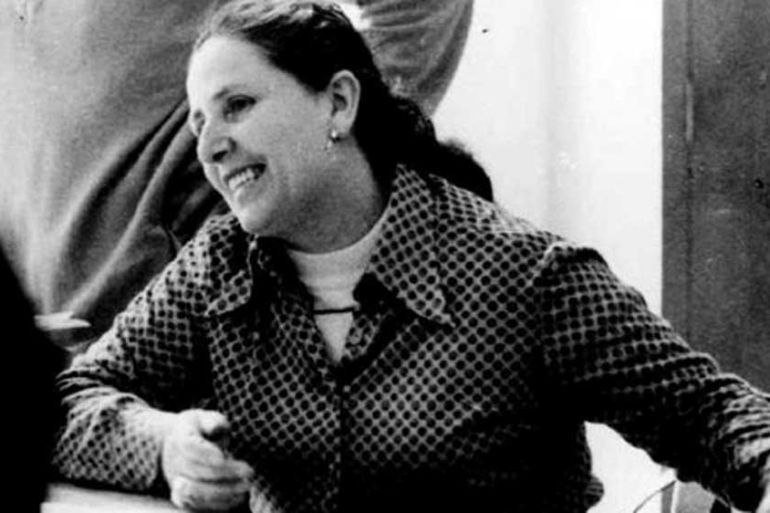Women and the mafia: A traditionalist emancipation?
Against or inside the Sicilian mafia, women have always played an active role.

Italy and its mafia are not known as bulwarks of progressivism. In the public eye Italy is still a conservative country, with a relatively small amount of women among its workforce. And, of course, the mafia is still associated with ancient laws of honour and blood.
In movies and series, the mafia is pictured as patriarchal and extremely traditional: a world with maybe a creative flexibility around business matters, but an iron cast worldview about the role of men and women, fathers and mothers, daughters and sons. All the godfathers and “soldiers”, friends and enemies are – with no exceptions – men.
Keep reading
list of 4 items‘Regime machinery operating efficiently’ as Tunisia cracks down on dissent
Why Egypt backed South Africa’s genocide case against Israel in the ICJ
US sanctions two RSF commanders as fighting escalates in Sudan’s Darfur
This image of the mafia exists for a reason, because the mafia grew in a rural society: the “pater familias” took decisions and gave orders, while woman were in a subservient position, taking care of the house and the children, functioning as a kind of cradle of mafia ideals and values.
Gender roles in the mafia?
Women were also expected to accept an arranged marriage, as pawn in the politics between leading clans, but they were indeed more than wives, sisters or relatives of mafiosi.
The women of the mafia supported and defended their husbands, denying their criminal involvement in front of the judges and – when the husbands decided to become a state witness, in other words “pentito”, regretted – repudiated them, in order to be faithful to their blood families and their irreversible laws, or even committed suicide. But there is also another side to the history of women in the mafia.
As early as the beginning of the 20th century, there are examples of the complex and articulated involvement of women in Cosa Nostra – “our thing”.
OPINION: The new face of the mafia in Italy
For example, in a landmark trial in 1927, seven women were accused of mafia crimes; and the career of Maria Grazia Genova (1909-1990) can only be described as real mafia – she was arrested more than 20 times.
More recently, Angela Russo, called “nonna eroina” – hero grandmother – was arrested. At first the court believed she played a central, yet not vital role as a drug courier. Russo herself was not satisfied with this accusation and explained that she had much more power, and had been acting like a boss, coordinating effectively the mafia activities.
Another famous woman boss – or actually a substitute boss – was Giusy Vitale, who in 1998 organised the family mafia activities after her brothers were arrested. After her arrest, she became a “pentita”, collaborating with the prosecutors and thus “betraying” her family and the rules of the mafia.
READ MORE: Helen Mirren – My mafia connection
With brothers, fathers and sons in prison, Giusy is an example of a woman who jumped in to take care of the business. Because they were the only ones allowed to visit their relatives in prison, wives or sisters had key access to information and represented their official bosses.
If the men served their time, most women took the back seat again, but not all. Some became acting boss after their husbands were killed or jailed, but succeeded in creating their own powerful positions.
Women fighting against the mafia
Women played a big role in the fight against organised crime in Italy in other ways as well. Rita Adria (1974-1992) is considered a hero in the antimafia movement.
She inspired films and books, since she decided to collaborate with the ministry of justice after her brother was killed by the mafia.
![Rita Adria, a witness in a major mafia investigation in Sicily, breaking the code of silence. She committed suicide a week after the mafia killed antimafia prosecutor Paolo Borsellino in July 1992 [Courtesy of Film Forum]](/wp-content/uploads/2016/07/57075ba483154ffe8556b18840e61035_18.jpeg)
At the beginning, breaking the law of “omerta” – non-cooperation with authorities – to her was a way of finding a vendetta, so, paradoxically, to obey the mafia law to kill the ones who killed one’s relatives, in a systematic chain of murders.
During her collaboration with the famous antimafia judge Paolo Borsellino, she continued helping him, becoming more interested in a broader idea of justice, risking her life and losing the “respect” of friends and family and even of her mother, since she was considered a traitor.

After Borsellino had been killed by the mafia, Adria committed suicide since she no longer felt safe. But she is still an inspiration for many other women who had and have the courage to fight – for personal reasons or for ideals – against the mafia.
Against or inside the mafia, women have always played an active role. In many ways, the mafia can be seen as a mirror of Italian society.
The old days of a group of men sitting around a wooden table in the shadow, making the decisions, smoking and enjoying the wine and dinner while the women cooked, are over by a long shot.
Silvia Mazzini is an assistant professor at the Humboldt University of Berlin. She is the author of Für eine mannigfaltige mögliche Welt. Kunst und Politik bei Ernst Bloch und Gianni Vattimo (For a Many-fold Possible World. Arts and Politics in Ernst Bloch and Gianni Vattimo) and of numerous articles on aesthetics, political philosophy and theatre sciences. She works as dramaturge and author for several theatre companies.
The views expressed in this article are the author’s own and do not necessarily reflect Al Jazeera’s editorial policy.
